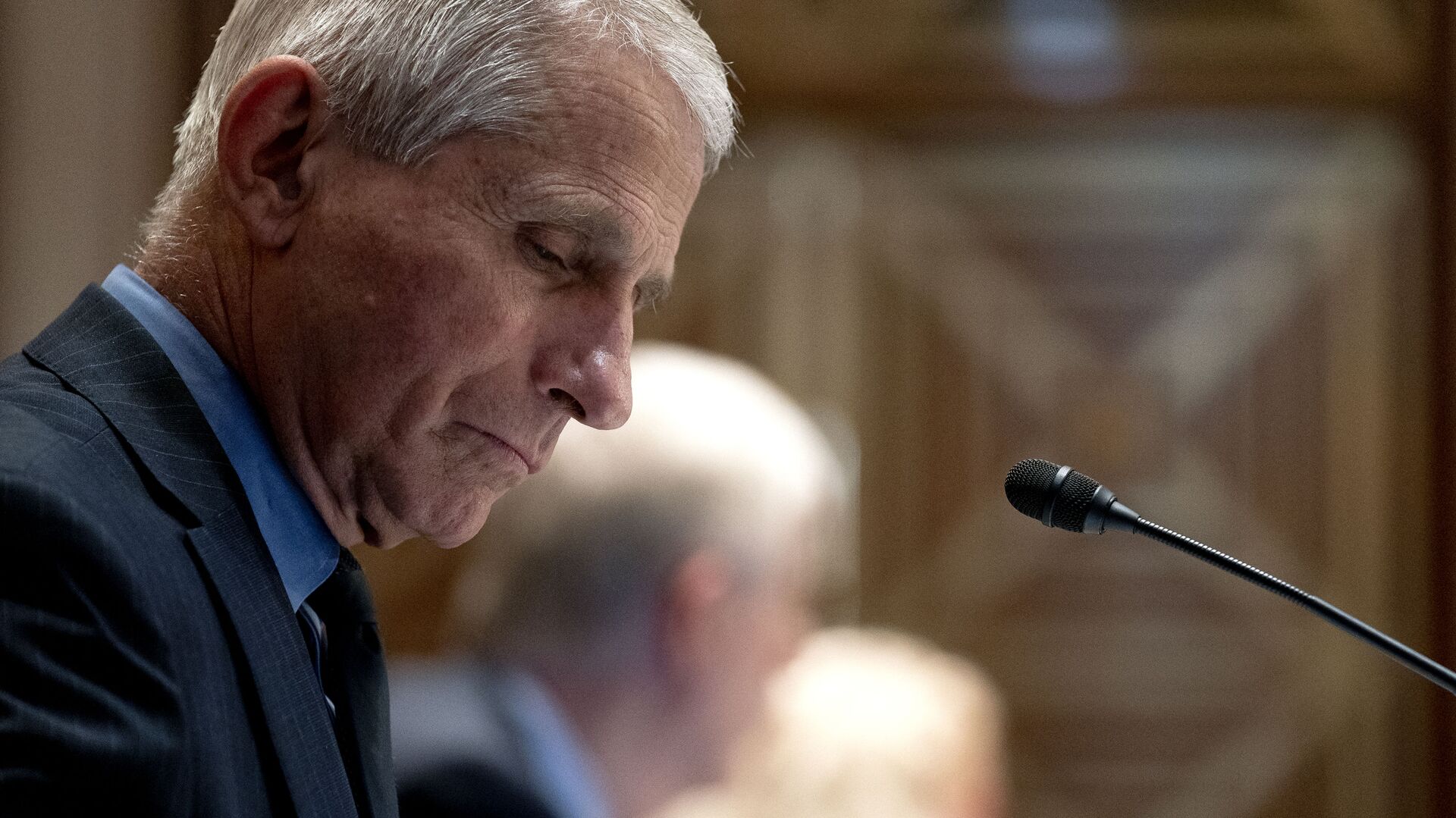Excerpts from a forthcoming book on the first year of the COVID-19 pandemic in the US reveal that top scientists resisted an order from former US President Donald Trump to slash program funding that partly went to coronavirus research at the Wuhan Institute of Virology at a time when Trump first began blaming the pandemic on an unproven theory the virus had escaped from the lab.
The revelation comes from an excerpt from “Nightmare Scenario: Inside the Trump Administration's Response to the Pandemic That Changed History,” a book by Washington Post journalists Yasmeen Abutaleb and Damian Paletta expected to hit shelves next week, given to Fox News.
‘A Direct Order From the President’
The excerpt takes place in mid-April 2020: about a month after the World Health Organization declared the COVID-19 outbreak to be a global pandemic, all attempts at containing it had failed and as many as 2,700 Americans were dying every day, most of them in New York, the epicenter of the first wave. On top of that, 22 million Americans were out of work and the US economy had taken its deepest-ever plunge into a recession due to pandemic-related lockdowns.
In the excerpt, Dr. Anthony Fauci, director of the National Institute of Allergy and Infectious Diseases (NIAID) at the National Institutes of Health (NIH) and a key figure in Trump’s coronavirus task force, and NIH Director Francis Collins weigh the possibility of resigning in protest after being ordered to immediately cut funding for a peer-reviewed grant that was helping back research at the top-level biolab in the Chinese city of Wuhan.
On April 15, 2020, Trump indicated his administration was looking into whether or not COVID-19 escaped from the Wuhan biolab, and then-Secretary of State Mike Pompeo urged that China “needs to come clean” on the origins of COVID-19. Two days later, on April 17, Trump told reporters he would look into whether or not US taxpayer money had funded research at the lab and would cancel it.
Trump on Obama’s $3.7 MILLION grant to CHINESE lab in Wuhan in 2015:
— Danny De Urbina (@dannydeurbina) April 18, 2020
“We will end that grant very quickly.” pic.twitter.com/l0ankccqqG
According to the excerpt, the NIH looked into this and found a $3.7 million grant to EcoHealth Alliance, which had worked with Wuhan Institute of Virology researchers in the past, but wasn’t presently involved in work there. On April 24, Collins and Fauci suddenly received notice that Trump wanted them to announce the grant had been terminated.
“Collins and Fauci told the White House and [the Department of Health and Human Services] that they were not sure the NIH actually had the authority to terminate a peer-reviewed grant in the middle of a budget cycle. The HHS general counsel told them to do it anyway and made clear it was a direct order from the president, implying that their jobs were on the line if they didn’t comply. Fauci and Collins reluctantly agreed to cancel the grant,” the authors wrote.
The book also includes a conversation between Fauci and Peter Staley, an HIV/AIDS activist who in the 1980s and 90s led militant protests that pressured the NIH into speeding up research on AIDS treatments. Staley briefly suggested Fauci and Collins resign in protest over the directive in order to demonstrate their contempt at the politicization of scientific research - and he wasn’t the only one to suggest it. In the end, they didn’t resign and they paused the spending of the final $369,819 balance on the grant.
A few months later, during a House Energy & Commerce Committee hearing in June 2020, Fauci told lawmakers he didn’t know why the grant had been canceled.
"Why was it canceled? It was canceled because the NIH was told to cancel it," Fauci said at the time. "I don’t know the reason, but we were told to cancel it."
The grant had helped pay for research into how coronaviruses jump from bats into humans. Several other viruses in the family, including Severe Acute Respiratory Syndrome (SARS) and Middle East Respiratory Syndrome (MERS) which infect humans from bats or pangolins, are suspected as the most likely origin of COVID-19, as well. However, other sources are also being investigated by the WHO, including zoonotic transmission from other animals, and escape from a biolab.
Focus on Wuhan Research Continues
During a May 2021 Senate hearing, Fauci flatly rejected an accusation by Sen. Rand Paul (R-KY) that the NIH had funded “gain-of-function” research in Wuhan, a risky procedure with high rewards in which viruses are encouraged to evolve and adapt to new environments. While it has the potential to open illnesses up to infecting new species or to improve its transmissibility, the research has in the past also yielded invaluable results, such as a vaccine against yellow fever, once one of the world’s most dangerous infectious diseases.
“Senator Paul, with all due respect, you are entirely and completely incorrect, that the NIH has not ever and does not now fund gain-of-function research in the Wuhan Institute,” Fauci said.
Republicans have long beaten the drum of a supposed lab leak in Wuhan. During Trump’s presidency, it was dismissed as a conspiracy theory. But since US President Joe Biden took office in January, the idea has begun to gain currency with liberals, as well. After a WHO team traveled to Wuhan in early 2021 to exchange data on the early days of the pandemic, Western politicians and some scientists began claiming China had withheld information about the biolab, even though WHO scientists said their efforts were never impeded by their Chinese colleagues.
In late May, Biden ordered the US intelligence agencies to conduct a 90-day probe into the origins of COVID-19.


